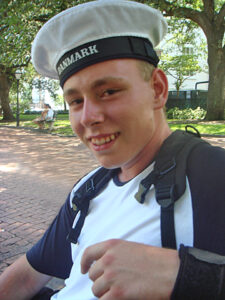 Danilo Terrida was only 20 when he hanged himself in a crane at a shipyard in 2011, two hours after having assured his family on the phone that he was fine and had small-talked with them. A month earlier, he had celebrated his birthday and everything apparently went well. Two weeks later, he made contact with the emergency medical service because he did not feel well psychologically and was sent home with tranquillising pills and was advised to see a doctor the next day. The local doctor he contacted refused to see him and asked him to call his family doctor several hundred kilometres away. This he did, and after eight minutes on the phone, he was prescribed sertraline, although he wasn’t depressed, and with no follow-up. A few moments before he killed himself, Danilo talked to a friend and said he didn’t know what was happening to him, but he didn’t mention anything about suicide. This is rather typical of an SSRI-induced suicide, and the timing is also typical. Many people kill themselves early on. The involved doctors have been officially criticised for amending Danilo’s files, up to a year after his death, so that it looked more plausible that he killed himself because of a depression, which wasn’t true (see www.daniloforlivet.dk).
Danilo Terrida was only 20 when he hanged himself in a crane at a shipyard in 2011, two hours after having assured his family on the phone that he was fine and had small-talked with them. A month earlier, he had celebrated his birthday and everything apparently went well. Two weeks later, he made contact with the emergency medical service because he did not feel well psychologically and was sent home with tranquillising pills and was advised to see a doctor the next day. The local doctor he contacted refused to see him and asked him to call his family doctor several hundred kilometres away. This he did, and after eight minutes on the phone, he was prescribed sertraline, although he wasn’t depressed, and with no follow-up. A few moments before he killed himself, Danilo talked to a friend and said he didn’t know what was happening to him, but he didn’t mention anything about suicide. This is rather typical of an SSRI-induced suicide, and the timing is also typical. Many people kill themselves early on. The involved doctors have been officially criticised for amending Danilo’s files, up to a year after his death, so that it looked more plausible that he killed himself because of a depression, which wasn’t true (see www.daniloforlivet.dk).
At least 11 other people, 10 of them adults, who have committed suicide in Denmark on antidepressants have acquired economic compensation from the Patient Insurance Association.
(First published in my book, Deadly Psychiatry and Organised Denial)